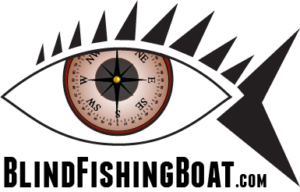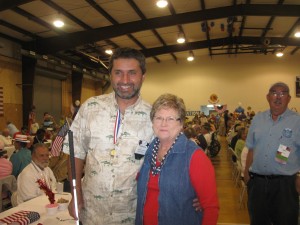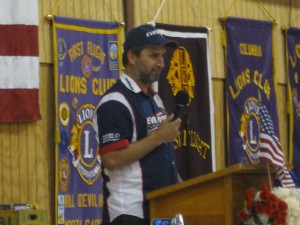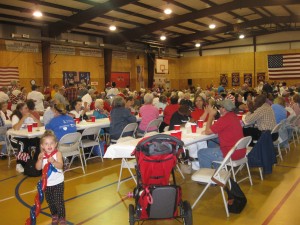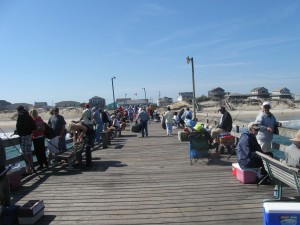26th Annual North Carolina Visually Impaired Persons Fishing Tournament
In mid October I attended the 26th Visually Impaired Persons Fishing Tournament based out of Manteo, North Carolina as the key-note speaker and a workshop facilitator. 528 fishers with visual disabilities participated in the event, with the North Carolina State tournament taking place on Tuesday, Oct. 14 and the first ever National Tournament the next day. Local area Lions are responsible for organizing the event each year under the leadership of Gwen White, the founder and driving force behind the event. http://www.ncvipfishing.org
The topic of my key note address was “hurdles in Over-Coming a Visual Disability”, and the focus of my workshop was “Strategies for success”. The audience was huge numbering close to 700 counting both tournament participants and the volunteers – the later of whom pay $75 each to be part of the event.
Breakfasts and dinners served at the Manteo high school gym were excellent and made even better with the warm hospitality that accompanied each meal. Even entering and leaving the gym was a special event in itself due largely to the gamut of greeters participants experienced at the door. There’s something to be said for southern hospitality.
The evening prior to the first day’s fishing included live entertainment by the “World’s Greatest Fishing Band” and, yes, every song has fishing as one of its themes. Accommodations were provided by a number of sea-side hotels located directly on the beach that stretch between the towns of Manteo and Nags Head, situated along the northern end of North Carolina’s famous Outer Banks.
I was invited to fish along side the tournament participants during the NC state Tournament, and represented Canada in the national tournament coming in third out of a field of 35. Given that this tournament represented my first try at peer fishing, I think I did reasonably well. Fishing is often near shoulder-to-shoulder and can be more than a little frustrating when someone a dozen feet away is pulling in fish steadily while you and the rest of the fishers not lucky enough to be standing close by are forced to look on. Casting in any direction but straight out is a real no-no if tangles with your neighbours are to be avoided.
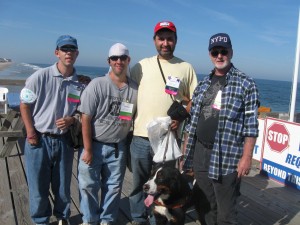
The fishing was held on five peers and two large vessels on day one, and on a single peer on day two. Peer fishing is popular with entrance fees being charged to people looking to fish for the day, and all manner of conveniences sold to make the day pass as comfortably as possible.
Peers are as long as 1,000 feet (340 meters) and are generally constructed out of wood. Depending upon the tide one can be anywhere from five to 10 feet above the water, with waves rolling under the peer and the occasional wave coming over top on those days following severe weather systems. Occasionally, sections or entire peers are washed away if in the direct path of hurricanes, which are common on the outer banks in North Carolina.
Participants in the tournament were provided with identical rods, reels and terminal tackle. Everyone was expected to use the Blood worms provided for bait. Each participant was responsible for casting out, hooking and landing their own fish; however, assistance could be obtained for baiting hooks and releasing fish if required. Species being sought included: Cobia, Croaker, Flounder, Sheep Head, Gray, Red Drum, Spot and Striper. Rays are not counted and are not to be brought on to the peers or boats due to their troublesome tails.
The technique for catching the above fish is quite simple. Terminal rigs consist of a one oz led weight snapped on to the end of a spreader rig, which is connected to the main line with a swivel. Two snelled hooks size #2 long shank are connected to the two arms of the spreader rig. Each hook is baited with about an inch of Blood Worm, threading the worm on to the hook. The rig is cast out by leaning over the hand rail of the peer and lowering the rod tip until the rod is pointed straight down. One then simply raises the rod releasing the line at the horizontal position. This method of casting on peers ensures maximum safety for all those around and is more than effective at flinging the rig out as far as one desires. However, peer fishers need not cast out far as the fish generally are attracted to the framework supporting the peer as it provides cover. Long-distance casting also greatly reduces your ability to feel the bite as the waves and currents are constantly moving your rig around, and slack introduced into the line due to this movement also makes for missed hook sets. . It’s more important to fish as close to the breakers as possible as fish depend on the continuous churning of the sand by the breaking waves to uncover their food source.
There are some veteran peer fishers participating in the tournament and total catches of a couple dozen fish by a single participant over the five hours the tournament lasts aren’t uncommon. Given the size of the Atlantic ocean however, I was amazed just how many small fish are swimming around. Nothing larger than 2 pounds was caught during the tournament and yet close to 800 pounds in total weight of fish were caught.
The NC VIP Tournament offers a great opportunity for fun and fellowship, and is a serious tournament for people with limited or no sight. Tournament rules are fair and rigorously enforced. Given the proximity to other fishers during the event and at meal times, the opportunity to make new acquaintances is excellent. Demand for slots to participate in the tournament exceeds the organizers capacity to deliver. .
It’s the tournament’s organizing committee’s hope that other U.S. states will hold similar VIP fishing tournaments and that someday a truly representative national tournament will be possible. I’ve agreed to provide my on-going support to the organizers in reaching this goal as I think tournaments such as this is serving to move the “sport” of fishing from being a recreational pass time to the status of a true sport, and it’s one in which people with vision disabilities are ideally suited to participate. There are serious world-class competitions for people with limited or no sight to participate in such as curling, alpine skiing, sailing and gulfing, so why not fishing?
